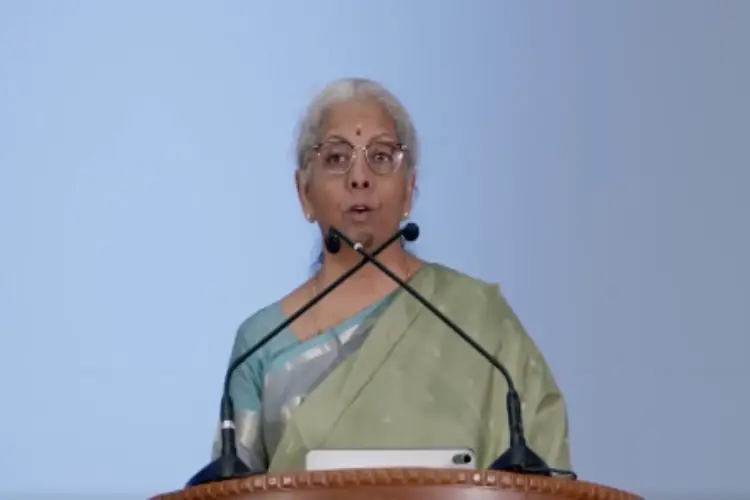
New Delhi
India Inc on Thursday hailed the GST Council's "forward-looking decisions" -- moving to two rates of 5 per cent and 18 per cent from 22 September, simplifying refunds and MSME procedures, and exempting individual life and health insurance from the indirect tax regime.
Industry bodies said the clarity will ease compliance, reduce litigation, and give businesses and consumers much-needed predictability.
The GST Council on Wednesday approved a two-tier rate structure of 5 and 18 per cent, which will be implemented from September 22.
CII Director General Chandrajit Banerjee said, "This move on GST reforms is a phenomenal milestone. By lowering rates on everyday items and critical inputs, the reforms provide immediate relief to families and strengthen the foundation for growth".
Hemant Jain, President, PHDCCI stated: "The roll-out of GST rate rationalisation from September 22, 2025, is a landmark reform that addresses both consumer welfare and revenue efficiency. By reducing rates on daily essentials such as toiletries, packaged foods, and utensils from 18-12% to 5%, the reform will ease household budgets and stimulate demand".
"We thank and welcome the rectification of the GST inversion in the Man-Made Fibre (MMF) value chain by aligning MMF fibre and yarn at 5 per cent from 18 per cent and 12 per cent earlier respectively. It addresses the long-standing blockage of working capital for thousands of spinners and weavers," Confederation of Indian Textile Industry (CITI) Chairman Rakesh Mehra said.
He further stated that with over 70-80 per cent of textile and apparel units in India being MSMEs, this reform will directly benefit a large segment of the industry by easing liquidity pressures, enhancing competitiveness.
K Syama Raju, President, FHRAI (Federation of Hotels and Restaurants Association of India) welcomed the GST Council's decision to simplify hotel room tariffs into two slabs of 5 per cent and 12 per cent.
"Reducing the tax on rooms up to Rs 7,500 to 5 per cent will make Indian hotels more affordable and attractive to both domestic and international travellers. This reform will directly boost tourism demand, increase occupancy, and encourage more spending across the hospitality value chain," he added.
In a major economic boost ahead of Diwali, the GST Council on Wednesday approved rate rationalisation with a focus on common-man, labour-intensive industries, farmers and agriculture, health and other key drivers of the economy.
According to the press release by the Ministry of Finance, exemption of GST on all individual life insurance policies, whether term life, ULIP or endowment policies and reinsurance thereof, to make insurance affordable for the common man and increase the insurance coverage in the country.
Exemption of GST on all individual health insurance policies, including family floater policies and policies for senior citizens, and reinsurance thereof, to make insurance affordable for the common man and increase the insurance coverage in the country.
Next-generation GST reforms, as announced by Prime Minister Narendra Modi from the ramparts of Red Fort on August 15, represent a strategic, principled, and citizen-centric evolution of a landmark tax framework, which will enhance the quality of life of every last citizen, the press release said.
GST Council approved reforms with a multi-sectoral and multi-thematic focus on improving the lives of all citizens and ensuring ease of doing business for all, including small traders and businessmen.
Rationalisation of the current 4-tiered tax rate structure into a citizen-friendly 'Simple Tax' - a two-rate structure with a Standard Rate of 18 per cent and a Merit Rate of 5 per cent; a special de-merit rate of 40 per cent for a select few goods and services.
GST has been reduced from 18 per cent or 12 per cent to 5 per cent on a host of common man items such as hair oil, toilet soap bars, shampoos, toothbrushes, toothpaste, Bicycles, Tableware, kitchenware, and other household articles.
According to the release, GST has been reduced from 5 per cent to NIL on Ultra-High Temperature (UHT) milk, Prepackaged and labelled chena or paneer; all the Indian Breads will see NIL rates (Chapati or roti, paratha, parotta, etc)
From 12 per cent OR 18 per cent to 5 per cent, GST has been reduced on almost all of the food items, such as packaged namkeens, Bhujia, Sauces, Pasta, Instant Noodles, Chocolates, Coffee, Preserved Meat, Cornflakes, Butter, Ghee, etc.
According to the release, GST on Air-conditioning machines, TVs 32 inch (all TVs now at 18per cent), Dishwashing machines, Small cars, and Motorcycles equal to or less than 350 CC were lowered from 28 per cent to 18 per cent
Reduction of GST from 12 per cent to 5 per cent on agricultural goods, such as tractors, agricultural, horticultural or forestry machinery for soil preparation or cultivation, harvesting or threshing machinery, including straw or fodder balers, grass or hay mowers, composting machines, etc, the release said.
Reduction of GST from 12 per cent to 5 per cent on labour-intensive goods such as Handicrafts, Marble and travertine blocks, granite blocks, and Intermediate leather goods, while on Cement, GST has been lowered from 28 per cent to 18 per cent.
ALSO READ: Halima Khatun fights poverty through women's rights in Sundarbans
A 12 per cent GST on 33 lifesaving drugs and medicines has been reduced to NIL and from 5 per cent to NIL on 3 lifesaving drugs & medicines used for treatment of cancer, rare diseases and other severe chronic diseases, the release said.
